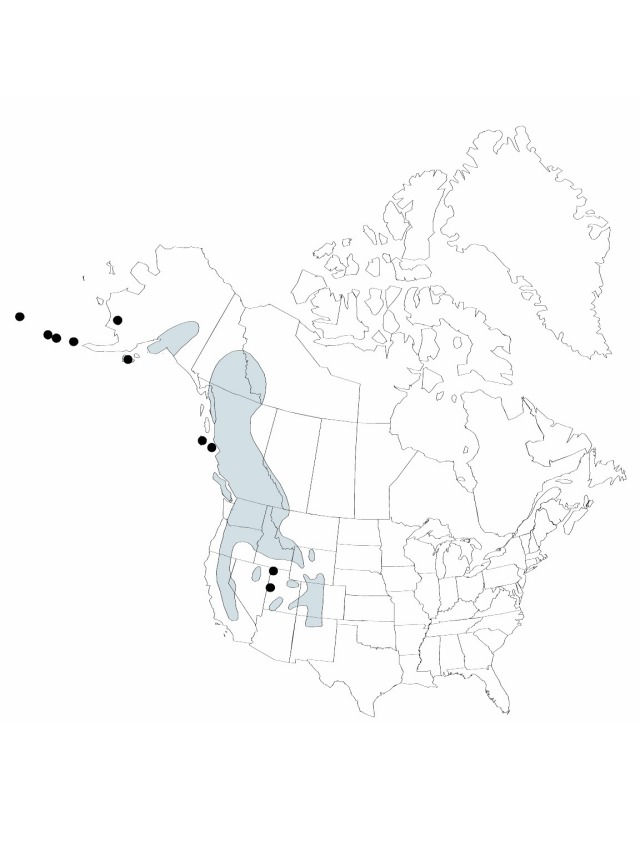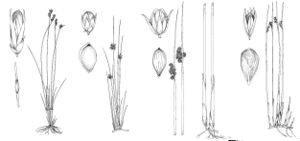Juncus drummondii
in C. F. von Ledebour,Flora Rossica 4: 235. 1853.
Herbs, perennial, strongly tufted, to 4 dm. Rhizomes densely short-branched. Culms terete. Cataphylls several. Leaves: blade absent or rarely present, to 1 cm. Inflorescences 2–5-flowered, loosely compact; primary bract usually longer than inflorescence. Flowers pedicellate; tepals brown to chestnut-brown with green midstripe, lanceolate or widely so, (4–) 5–8 mm, margins clear; inner series loosely subtending capsule at maturity, shorter; stamens 6, filaments 0.7–1 mm, anthers 1.1–1.6 mm; style 0.2 mm. Capsules brown to chestnut-brown, 3-locular, oblate, 4.5–7 (–8) × 1.8–2.2 mm, nearly equal to or exceeding perianth. Seeds amber, body oblate, 0.5–0.6 mm.
Phenology: Flowering and fruiting summer.
Habitat: Exposed slopes, stream banks, and meadows in montane and alpine areas
Elevation: 1600–4000 m
Distribution

Alta., B.C., N.W.T., Yukon, Alaska, Ariz., Calif., Colo., Idaho, Mont., Nev., N.Mex., Oreg., Utah, Wash., Wyo.
Discussion
Plants with capsules distinctly longer than the perianth have been referred to as Juncus drummondii var. subtriflorus. Those plants frequently occur sympatrically with J. drummondii (strict sense) through most of its range, leaving considerable doubt as to the value of recognizing such variation.
Selected References
None.
